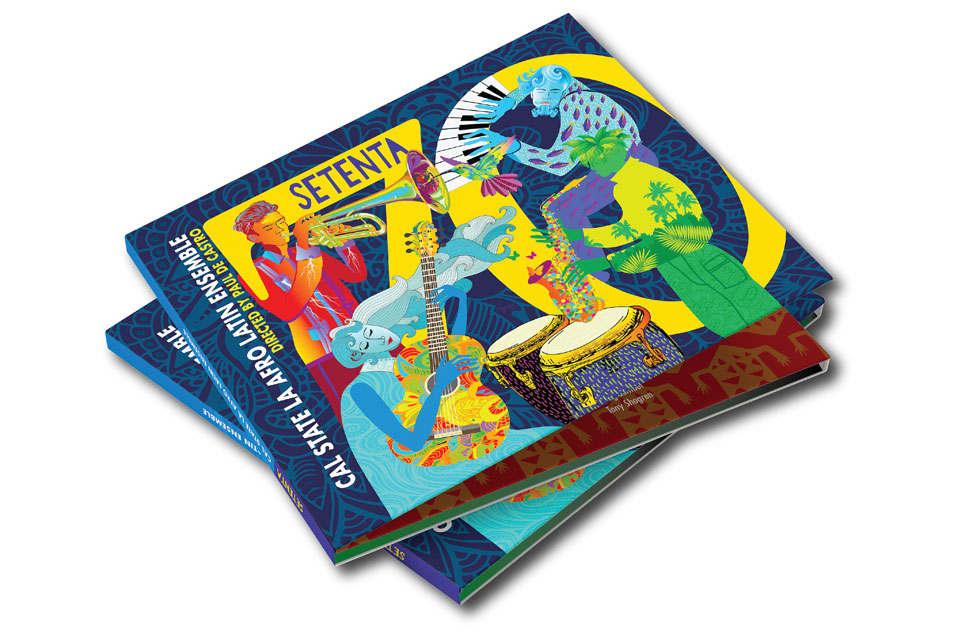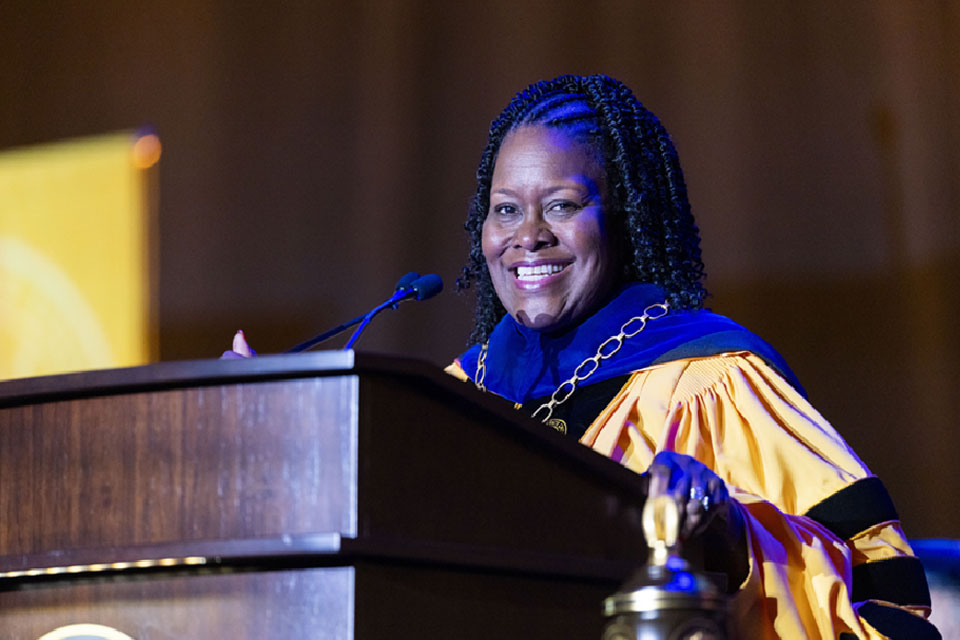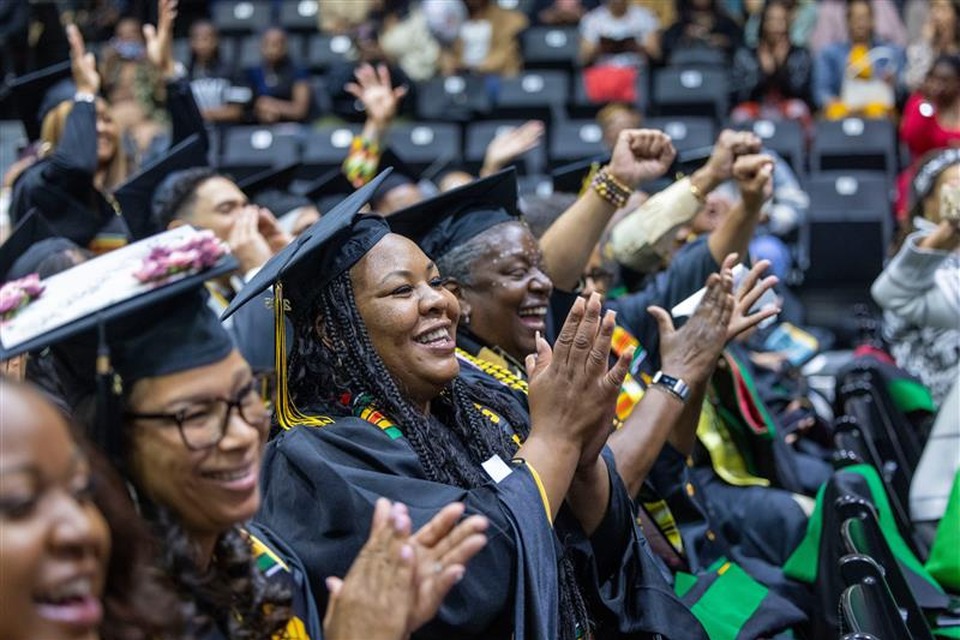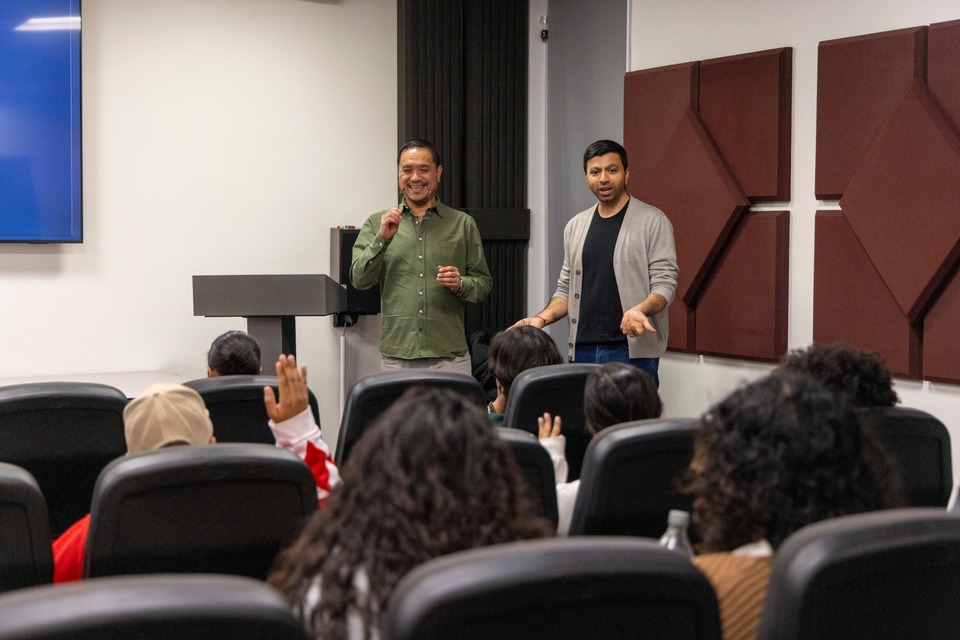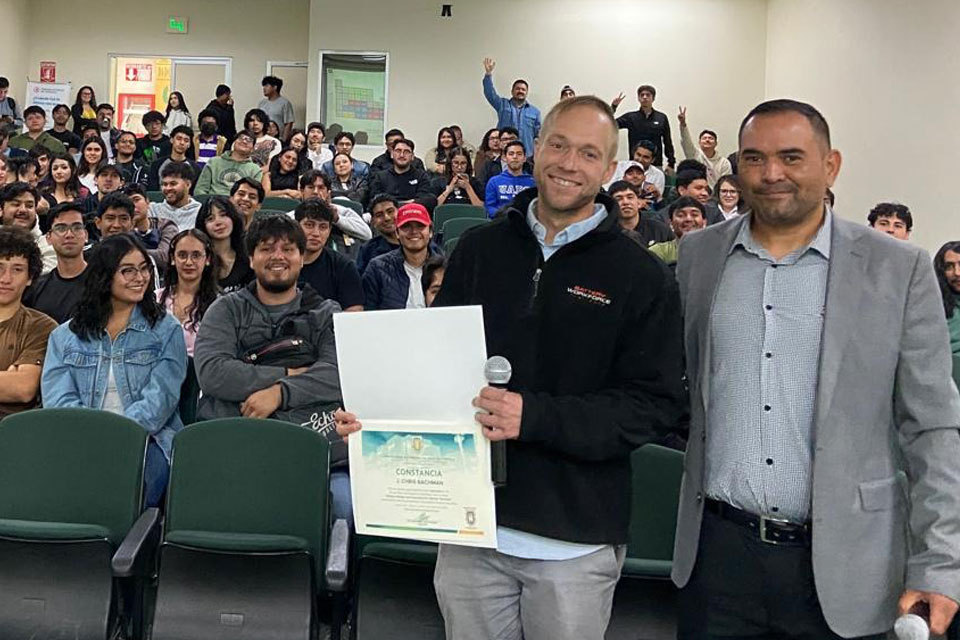The renowned Cal State LA Afro Latin Ensemble has released its second album, Setenta, a vibrant compilation of beloved classics and new compositions that represent the past and future of the genre.
Under the guidance of band director Professor Paul De Castro, the Cal State LA Afro Latin Ensemble has produced a passionate, sophisticated work that revels in its cultural tradition. Breezy flutes and bright trumpets, nimble and intricate percussion work and a sultry modern take on Leonard Bernstein’s “Maria” are just a few of the delights this joyful album packs.
“The goals were very high. I didn’t accept second-rate anything,” De Castro said as he described creating the album. “We had the best arrangements, great guest stars, and I put the pressure on the students.”
Setenta, which is Spanish for “Seventy,” was named to commemorate Cal State LA’s 70th anniversary and is released by the university’s Aerie Records. The label was launched in 2014 by Cal State LA President William A. Covino and First Lady Debbie Covino, both of whom serve as the label’s executive directors. Proceeds from album sales will be used to support arts education programs for Achieve LA, a partnership between Cal State LA and the YMCA of Metropolitan Los Angeles to support youth and their families through initiatives promoting civic engagement, academic enrichment and college pathways in historically underserved communities.
“The roots of Cal State LA’s Afro Latin Ensemble reach deeply into Los Angeles, and Setenta’s rich connection to the cultural fabric of our region has culminated in a work that is timeless,” Covino said.
RELATED:
Listen: Trombonático, trombone extravaganza
As De Castro envisioned Setenta, he wanted to provide students with a unique opportunity to learn the professional process of making an album from start to finish. He brought the ensemble into a studio to learn the precise and often humbling practice of recording.
“The recording studio is like a microscope. Every little mistake is noticeable,” De Castro said. “Something might be OK in a live performance, but when you go into the studio, it’s different. You get to replay it and you get to analyze it.”
The experience of recording in a studio can provide students with a professional edge as musicians and educators. “I hope they keep that with them even when they are teaching high school and middle school. For those who go on to have a professional career as a performer, when they are called to do a recording, they will know what is expected,” he said.
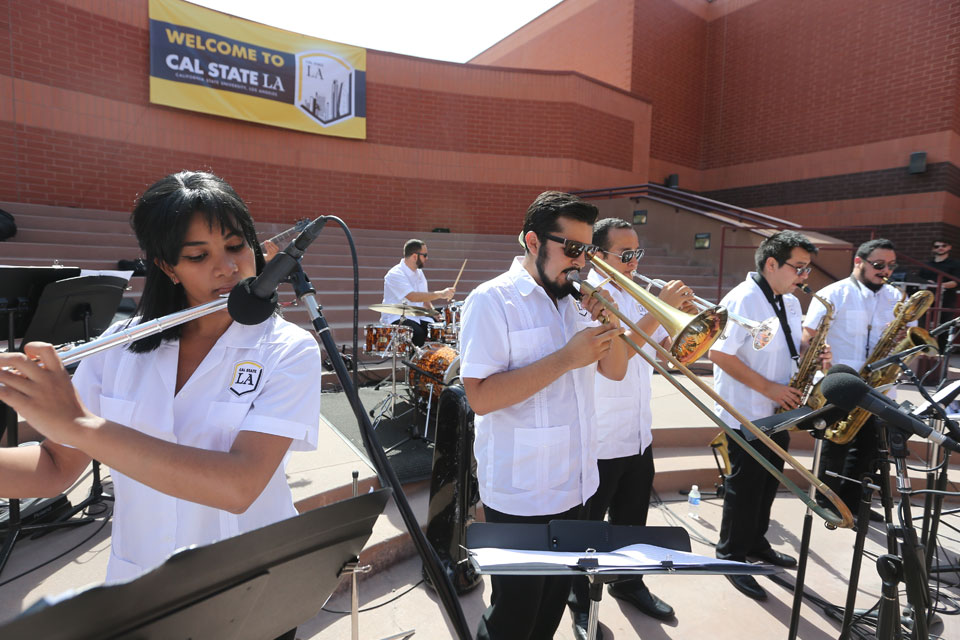
The group began in 1999 as a Latin jazz ensemble, founded by a small number of students who were curious about integrating Latin rhythms into their jazz studies. They sought the advice of De Castro, a Cal State LA alumnus and faculty member in the College of Arts and Letters. “I knew what Cal State LA students were about, because I was one of them,” he said, recalling exceptional professors like Roy Main and David Caffey, both of whom helped him as he earned his bachelor’s and master’s degrees from the Cal State LA Department of Music.
As a well-respected scholar of Afro Latin music and a talented professional pianist, De Castro was an ideal faculty advisor for the fledgling Latin jazz ensemble, and he soon began incorporating traditional Caribbean rhythms, particularly those from Cuba, and inviting vocalists to join the group. The term “Afro Latin” was used in the course description to ensure a broad scope of rhythmic exploration, from Dominican merengue to salsa and Cuban timba.
The ensemble quickly grew to three times its original size, building upon the foundational rhythm section of congas, bongos, timbales, güiros, and maracas, and incorporating a full horn section, piano, and even an occasional drum kit. Wearing signature guayabera shirts featuring the Cal State LA logo, the group enthralled audiences during live performances at venues such as the Autry Museum and Grand Park in downtown Los Angeles. In 2000, the 22-person ensemble performed in Cuba, and 10 years later, they played before an appreciative audience of 2,000 in China.
While their live performances were captivating, De Castro wanted to ensure that the music lived on in recorded form. To create Setenta, he relied on a large network of alumni and friends of the program.
De Castro points to one of his favorite tracks on the album, “Trombonático,” as an example of the collaborative effort that underscores Setenta’s success.
For the trombone section, De Castro relied on four former students, including Luis Bonilla, one of the premiere trombone players in the world, and José Arellano, who also served as track composer and arranger.
“Setenta is the fruit of a collaborative effort between students, faculty, alumni and guest musicians, the type of which could only take place at Cal State LA,” said the album’s executive producer, Jose A. Gomez, Cal State LA executive vice president.
The album also features the unmistakable vocal work of Grammy award-winning Cuban artist Iris Sandra Cepeda, the percussive expertise of timba specialist Calixto Oviedo, and the studied trombone stylings of Cuban musicology scholar Edgar Hernández, all of whom serve as part-time faculty at Cal State LA.
The student musicians featured on the album have thrived within the Afro Latin music program, thanks to not only the storied excellence of their educators, but also the contributions of the professional musicians like Lily Hernández, Leider Chapotín and Gonzalo Chomat, who dedicated their time and expertise to Setenta.
“Our main goal,” De Castro says, “is to make people feel happy, to make people want to move and dance.”
# # #
California State University, Los Angeles is the premier comprehensive public university in the heart of Los Angeles. Cal State LA is ranked number one in the United States for the upward mobility of its students. Cal State LA is dedicated to engagement, service, and the public good, offering nationally recognized programs in science, the arts, business, criminal justice, engineering, nursing, education, and the humanities. Founded in 1947, the University serves more than 28,000 students and has more than 245,000 distinguished alumni.
Cal State LA is home to the critically-acclaimed Luckman Fine Arts Complex, Pat Brown Institute for Public Affairs, Hertzberg-Davis Forensic Science Center, Hydrogen Research and Fueling Facility, Billie Jean King Sports Complex and the TV, Film and Media Center. For more information, visit www.CalStateLA.edu.

